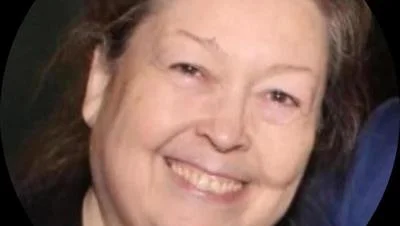Honorable Judge Cynthia L. Martin | Submitted
Honorable Judge Cynthia L. Martin | Submitted
The Honorable Cynthia L. Martin was selected to serve on the Court of Appeals – Western District 11 years ago. Now, she is part of the process of selecting others to serve as jurists.
Named Chief Judge of the Western District Court of Appeals on July 1, Martin replaced former Chief Judge Karen Mitchell as chair of the Commission of the 16th Circuit Judicial Commission.
“Though my work as Chair adds to my overall workload as a judge, it is a labor of love,” Martin told the KC Reporter. “I thoroughly enjoy visiting with and encouraging applicants and those who think they may one day want to be an applicant.”
The Commission is made up of five individuals. Two are elected, two are lay people appointed by the governor and one is head of the Court. Before Justice Martin became an appellate justice and subsequently Chief Judge of the federal court, she served on the Commission from January 2004 through December 2009 as an elected lawyer member.
“I thus already have a good working knowledge of the process,” said Martin. “That, coupled with my personal journey to the bench, has armed me with great empathy for those who desire to serve as a judge. I will do all that I can to leave every applicant with the feeling that he or she has been supported, listened to, coached and mentored, and inspired by the non-partisan selection process utilized to fill vacancies on the 16th Circuit bench.”
The Commission’s merit-based, non-partisan process of selecting judges has become a national model adopted by other states.
The method in which the Commission fills vacancies is governed by the Missouri Nonpartisan Court Plan, which was adopted by ballot initiative in the 1940s.
“When a judicial nominating commission is itself diverse, the message is communicated to all that diversity and inclusiveness is, indeed, a genuine objective of the nonpartisan selection process,” Martin said. “In fact, one of the hallmarks of the nonpartisan selection process is its promotion of diverse judicial candidates far more successfully than is experienced with elected judicial positions. Missouri's nonpartisan judicial selection process is the great-leveler, and that is manifested by the constitution of the Commission itself.”
COVID-19, however, has changed how the Commission is meeting the ideals of the Missouri Nonpartisan Court Plan.
“It is common for those interested in applying to be a judge to meet informally with members of the Commission before the formal public interviews,” she said. “These informal meetings were generally in-person meetings. They are now conducted by phone or in locations where social distancing can be more readily practiced.”
An upcoming vacancy for which the Commission will be conducting interviews will take place on August 26, 2020.
“Given the importance of the formal interviews to the non-partisan judicial selection process, all agree that in-person interviews are much preferred if they can be conducted safely,” Martin said. “The Commission's plans for its late August meeting have yet to be finally determined or announced. However, if at all possible, the Commission will endeavor to interview applicants in-person with strict protective measures in place.”
Prior to her appointment, Martin practiced private law for 25 years, focusing on commercial litigation, general business representation, public law representation and business and real estate transactions.
“I argued my first case in the courtroom of the beautiful building that houses the Missouri Court of Appeals, Western District, in 1983 — one year after the building was constructed,” she said. “As my law practice returned me time and again to the appellate courtroom, the spark I first experienced as a law student continued to grow. I came to appreciate that my love of the intellectual study of the law, of writing, and of digesting complex information to discern salient facts, were well suited to work as an appellate judge.”
She first applied to serve as a Judge on the Missouri Court of Appeals in late 1999. Several applications later, Martin was finally appointed in October 2009.






 Alerts Sign-up
Alerts Sign-up